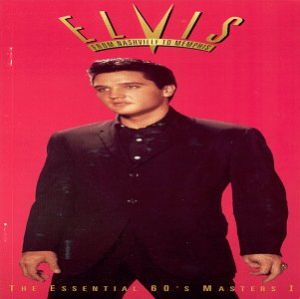
- Format: MP3

Since The King of Rock 'n' Roll was the complete '50s masters, it was easy to assume that its five-disc '60s sequel, From Nashville to Memphis: The Essential 60's Masters, rounded up all the masters from that decade, which is simply not the case. The producers deliberately avoided the soundtracks to Elvis' movies, which perhaps makes sense, given that they are roundly and rightly disparaged as Presley's low point, which then opened the doors to presenting just what they judged as the best non-soundtrack recordings he made during the '60s. They also disregarded the gospel recordings, saving them for the double-disc 1994 collection Amazing Grace: His Greatest Gospel Songs, leaving this as an overview of the best of his pop and rock material of the '60s, all recorded after he got back from the army. Instead of being a detriment, this is a brilliant move, distilling his erratic, wide-ranging '60s recordings to their very best, providing a relatively comprehensive overview of the greatest material Elvis recorded during his most inconsistent decade. Its biggest flaw is that in its zeal to overlook the soundtracks, the box skips over even the hits from the films, so this does not have "Can't Help Falling in Love," "GI Blues," "Follow That Dream," "Viva Las Vegas," "Little Less Conversation," and "Return to Sender," as well as other, lesser hits. They are missed, particularly because there is a surfeit of pop-oriented material from the early '60s. That's one area where this box excels: It proves that Presley did turn toward pop in the early '60s. Contrary to conventional wisdom, he did not abandon rock & roll, and there are many tough performances from the early years of the decade that stand their own with the '50s RCA sides, but by the middle of the box — which roughly corresponds with the middle of the decade — it becomes clear that Elvis needed to change his approach, and he did with stunning power.
That's where the scope of the box comes into play: By disc three, there's been plenty of good, sometimes great, music, but when Elvis gets his swagger back just before the songs that formed From Elvis in Memphis, the growing energy is kinetic, and the fourth disc, along with half of the fifth, are intoxicating in how Presley rediscovers his power and starts to not only sing songs worthy of his talents, but have productions and performances that match. This is the greatest music on this set — "Long Black Limousine," "Rubberneckin'," "Wearin' That Loved on Look," "In the Ghetto," "Suspicious Minds," "True Love Travels on a Gravel Road," and "Kentucky Rain" are among the best of this batch — towering over the rest of the music here and holding its own with the Sun material. This is presented in more thorough form elsewhere, but the long view and scope of this set really make his comeback dramatic on From Nashville to Memphis. That narrative makes the set essential, as does the judicious selection of his early- and mid-'60s highlights. It's done well — well enough to almost excuse the very, very big hits that are missing, even if it doesn't completely account for their absence. That is a pretty big flaw, but even so, From Nashville to Memphis is necessary for any serious pop library, which speaks volumes for the quality of the music within the box.